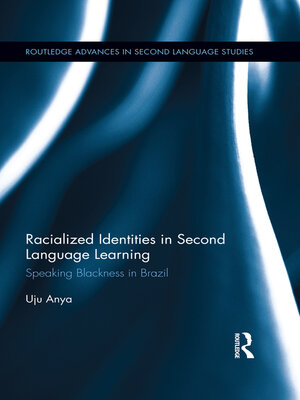Racialized Identities in Second Language Learning
ebook ∣ Speaking Blackness in Brazil · Routledge Advances in Second Language Studies
By Uju Anya

Sign up to save your library
With an OverDrive account, you can save your favorite libraries for at-a-glance information about availability. Find out more about OverDrive accounts.
Find this title in Libby, the library reading app by OverDrive.



Search for a digital library with this title
Title found at these libraries:
| Library Name | Distance |
|---|---|
| Loading... |
*Winner of the 2019 AAAL First Book Award*
Racialized Identities in Second Language Learning: Speaking Blackness in Brazil provides a critical overview and original sociolinguistic analysis of the African American experience in second language learning. More broadly, this book introduces the idea of second language learning as "transformative socialization": how learners, instructors, and their communities shape new communicative selves as they collaboratively construct and negotiate race, ethnicity, gender, sexuality, and social class identities. Uju Anya's study follows African American college students learning Portuguese in Afro-Brazilian communities, and their journeys in learning to do and speak blackness in Brazil. Video-recorded interactions, student journals, interviews, and writing assignments show how multiple intersecting identities are enacted and challenged in second language learning. Thematic, critical, and conversation analyses describe ways black Americans learn to speak their material, ideological, and symbolic selves in Portuguese and how linguistic action reproduces or resists power and inequity. The book addresses key questions on how learners can authentically and effectively participate in classrooms and target language communities to show that black students' racialized identities and investments in these communities greatly influence their success in second language learning and how successful others perceive them to be.







